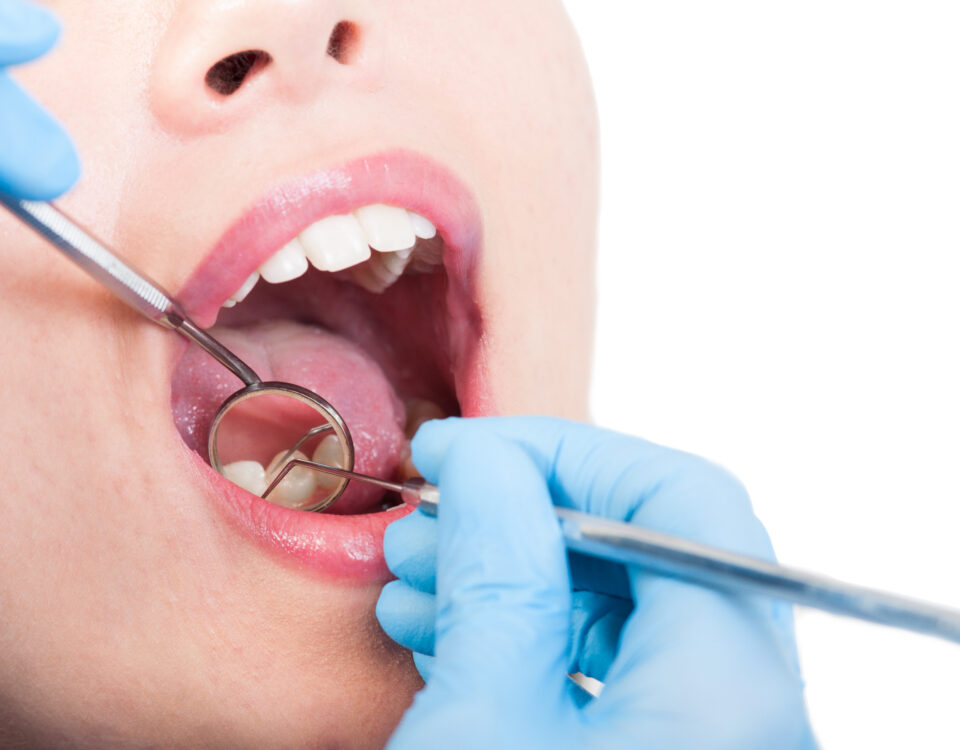Heart Health Month: How Stress Can Affect Your Heart And Mouth

Children’s Dental Health Month: Everything You Need to Know
February 10, 2022
How To Find The Best Dentist For You
February 22, 2022Heart Health Month: How Stress Can Affect Your Heart And Mouth

In recognition of Heart Health Month, we would like to discuss the relationship between stress, your heart, and your dental health. It is well known that stress can have negative effects on the body, including increased blood pressure and heart rate. However, it can also negatively impact your dental health, too.
What is Heart Health Month?
Put simply, Heart Health Month is a time set aside to promote heart health awareness and encourage people to live healthier lifestyles. The American Heart Association (AHA) was created this month to help spread the word about the effects of heart disease and how we can prevent them.
According to the AHA, cardiovascular disease (CVD) heart disease remains the number 1 cause of death in the United States. The main symptom of CVD are heart attacks, also known as myocardial infarction. This occurs when the blood supply to the heart is severely reduced or cut off completely. This deprives your muscles of oxygen and nutrients they need to function properly. Within minutes of a myocardial infarction, damage begins to occur. If adequate measures are not taken during this time period, permanent scarring can take place. This can increase your risk of future heart problems.
What is Cardiovascular Disease?
Cardiovascular disease (CVD) includes a number of different types of conditions, including coronary artery disease, which affects the supply of blood to your heart muscle; stroke, which occurs when the blood flow to part of your brain is interrupted or cut off completely; and peripheral artery disease, a buildup of plaque in the arteries that supply blood to your legs and arms.
Heart Health Month and Your Dental Health
You may be surprised to learn that dental health is directly related to heart health. Studies have shown that there are links between gum disease and heart issues like coronary artery disease, stroke, heart attack, and even congestive heart failure. As the plaque builds up along your teeth, it can also begin to form along your blood vessels (just like what happens in your arteries). If the plaque continues to build inside of your bloodstream, it can eventually lead to serious heart issues.
What Causes Heart Disease?
There are a number of risk factors that can increase your chance of developing heart disease. Some are things you cannot control, like age, family history, and genetics. Other factors are within your control, such as diet and lifestyle. You can begin to reduce your risk of heart disease by quitting smoking, getting more exercise, losing weight if needed, and reducing stress.
Reduce Your Risk of Heart Disease With Dental Care
Although dental health is not the main factor in developing heart disease, it is an easy one for you to control. By taking care of your teeth and gums on a regular basis and visiting us for cleanings and exams on a regular basis, you can reduce your risk of heart disease and promote better overall health.
Tips to Protect Your Heart
Heart Health Month is an excellent time to brush up on some tips about how you can improve your heart health through simple changes in your lifestyle and daily habits. For example:
- Quit smoking. Cigarette smoke contains carbon monoxide. This interferes with the blood’s ability to transport oxygen throughout your body, including to your heart muscle.
- Eat healthy. A diet filled with fruits and vegetables can help reduce cholesterol levels and promote overall wellness.
- Reduce or control your weight. If you are overweight, talk to your doctor about ways you can lose weight.
- Exercise regularly: Aim for at least 30 minutes of daily exercise like walking or swimming.
- Start your day with breakfast. Eating breakfast first thing in the morning helps stabilize blood sugar levels and prevent them from dipping.
- Limit alcohol consumption. Alcohol can actually cause the liver, muscles, and heart to work harder than usual.
- Stay in touch with your doctor. If you haven’t already done so, establish a relationship with a primary care physician you trust to help monitor your general health.
- Remain aware of conditions that can lead to heart disease. Keep an eye out for high blood pressure, high cholesterol, diabetes, and obesity.
- Visit your dentist on a regular basis. Your dentist can work with you to prevent cavities and gum disease.
Make an Appointment with Mountain Aire Dentistry
To learn more about cardiovascular disease and how you can reduce your risk through dental care, make an appointment with Mountain Aire Dentistry today. We offer a full range of general and preventive dental services for patients in the Broomfield area. Call us today to make an appointment or to learn more: (303) 731-7755.
When you visit our Broomfield dental office, your smile is our top priority. Our Dentists invite you to experience the difference a warm and caring team can provide for you and your family. Enjoy a unique and comfortable dental experience designed to bring a healthier and happier smile back into your life. We invite you to call or visit our Broomfield dental office and discover the exceptional difference we offer to those we serve.













